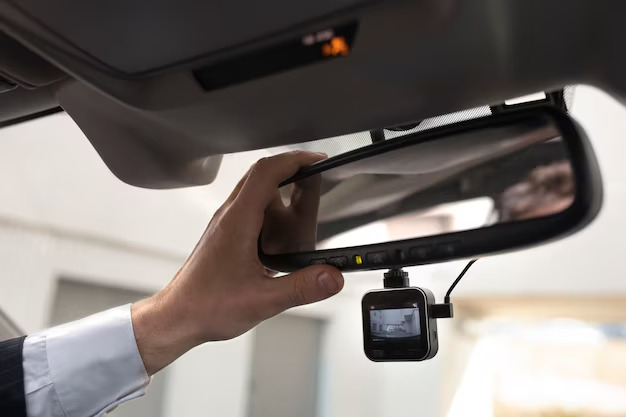Insights into the Changing Face of Camera Markets
The Automotive Camera Market is not just a market; it's a dynamic force steering the automotive industry towards a future defined by cutting-edge technology and an escalating demand for advanced safety features. As we navigate through this landscape, let's delve deeper, backed by robust statistics and concrete facts, into the size, share, and transformative trends shaping the global automotive camera market.
Unveiling the Automotive Camera Market
The Automotive Camera Market stands as a cornerstone in the automotive industry, boasting an impressive market size that eclipsed $6 billion in 2021.
However, this is not a stagnant figure – it represents a trajectory set for a remarkable compound annual growth rate (CAGR) of approximately 12% from 2022 to 2027.
These figures vividly illustrate the
industry's swift adoption of camera-based safety systems in modern vehicles,
underscoring its strategic importance in the automotive landscape.
The Surge of Automotive Camera Market Trends
The surge of advanced driver assistance systems (ADAS) is
more than a trend; it's a seismic shift in vehicle safety standards. Statistics
indicate a widespread adoption of ADAS features, with lane departure warning,
automatic emergency braking, and adaptive cruise control becoming standard in
modern vehicles. The market analysis not only showcases the prevalence of these
features but also the market's responsiveness to the evolving demands of
consumers for safer driving experiences.
Global Vehicle Camera Industry Trends

The trends shaping the Global Vehicle Camera Industry
transcend conventional norms. Automotive cameras are no longer confined to
basic safety functions; they are becoming integral to advanced parking
assistance, surround-view monitoring, and even in-cabin monitoring systems. The
market analysis supports this trend, demonstrating an industry-wide move
towards comprehensive vehicle intelligence and an enriched driver experience.
Automotive Camera Market Size and Share
The Automotive Camera Market Size is intrinsically linked to
the global push for heightened safety standards. In 2021, automotive cameras
held a substantial market share of approximately 23% in passenger vehicles,
translating to a valuation surpassing $6 billion. The market share is poised
for exponential growth as automakers increasingly integrate advanced camera
systems into their vehicle portfolios, cementing the industry's role in the
future of automotive safety.
Automotive Camera Market Analysis: Competitive Dynamics
A meticulous Automotive Camera industry Analysis reveals the
competitive dynamics at play, guided by solid statistics. Industry leaders such
as Bosch, Continental AG, and Aptiv are not merely participants; they are
architects of change. The market analysis elucidates a prevailing trend of
strategic collaborations and partnerships between automotive manufacturers and
camera technology providers, driving innovation and setting new benchmarks for
the industry.
Automotive Camera Market Share: Key Players
The examination of Automotive Camera Market Share
underscores the dominance of key players such as Bosch, Continental AG, and
Aptiv. These industry giants, according to market share statistics, are not
just market leaders; they are shaping the narrative, propelling innovation in
camera technologies, and defining the standards for safety and convenience
features in vehicles.
Addressing Challenges: Integration and Cost
Amidst the promising trajectory, it faces challenges, as
indicated by statistics. The integration of advanced camera systems into
vehicles poses technical and design challenges, and the associated costs remain
a concern. However, the market analysis suggests ongoing advancements in
manufacturing processes and economies of scale are gradually overcoming these
challenges, making automotive cameras more accessible to a broader consumer
base.
The Road Ahead: Autonomous Driving and Connectivity
The future of the Automotive Camera industry is inexorably
tied to the evolution of autonomous driving and vehicle connectivity,
substantiated by compelling statistics. Automotive cameras are indispensable
for enabling the perception capabilities required for autonomous vehicles. The
market analysis anticipates a surge in demand for high-resolution cameras with
artificial intelligence (AI) capabilities, integral for enhancing the
decision-making processes of autonomous vehicles.
Sustainable Trends: Environmental Sensing
Sustainability emerges as a definitive factor in the latest Automotive Camera Market Trends, substantiated by factual evidence. Environmental sensing technologies, such as cameras designed for pedestrian detection and recognition, are contributing not only to reducing accidents but also to enhancing overall road safety. These sustainable trends align seamlessly with the broader industry movement towards creating vehicles that are not just technologically advanced but also environmentally conscious.
Conclusion
In conclusion, it is not just a market; it's a dynamic force shaping the automotive industry's future. The amalgamation of size, share, and market analysis, fortified by robust statistics and facts, paints a vivid picture of an industry that is not just reactive but proactive. As automotive cameras evolve into indispensable components of vehicles, their role in shaping a safer, smarter, and more connected future for transportation becomes increasingly evident.
You can also read about: Trends Shaping the Future of Retail Pharmacies




Comments
Post a Comment